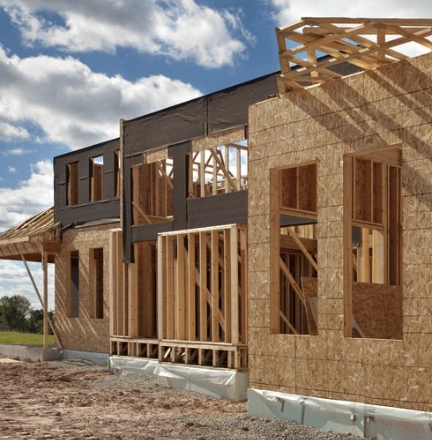
1. Laying the Groundwork: Crafting Your Home’s Blueprint
A comprehensive plan serves as the roadmap for building a home. It is crucial to detail every aspect, from floor plans to the types of materials and the finishes desired. Working closely with architects and planners can help avoid costly and time-consuming changes mid-construction. Plus, a skilled architect who can visualize and improve your ideas can transform a good plan into a great one. A well-thought-out plan will align with your budget constraints while meeting all zoning and building codes. Ensuring that every detail is planned before construction begins can save a significant amount of time and resources.
2. Selecting Your Dream Team: Finding the Right Builder
The choice of builder will significantly influence the quality and timeliness of your home construction. It’s vital to select a builder with a solid reputation and excellent references. Prospective homeowners should conduct interviews, review previous projects, and confirm credentials and insurance. A builder who communicates well and understands your vision will contribute significantly to the success of the project. Trust between the homeowner and builder lays the foundation for a home that is built to last. Additionally, ensuring that the builder is flexible and responsive to changes can greatly reduce stress throughout the building process.
3. Financing Your Vision: Smart Budget Management
Budgeting for home construction is about balance. One needs to know the costs associated with each phase of building and allocate funds accordingly. It’s advisable to include a contingency fund of at least 10% to cover unexpected expenses that often arise during construction. Regularly review the budget with your builder to ensure the project stays on track without compromising on quality. By being proactive about costs, homeowners can manage their finances better and avoid overspending. Transparent communication with your contractor about budget expectations can help prevent financial overruns and ensure that both parties are aligned on the project costs.
4. Essential Elements: Focusing on Functionality and Durability
While aesthetic elements like layout and interior design are important, functional aspects such as electrical, plumbing, and HVAC systems are crucial. Homeowners should ensure these are planned efficiently and installed by qualified professionals. Issues with these systems can lead to major inconveniences and costly repairs. For instance, proper installation of a gutter system by a reliable gutter company is crucial to avoid water damage. Similarly, ensuring adequate insulation will contribute to energy efficiency and comfort in the home. Additionally, choosing materials that stand up to local weather conditions will protect the home’s structural integrity and aesthetic value over time.
5. Building With Tomorrow in Mind: Future-Proofing Your Home
Building a home isn’t just about the immediate needs but also considering long-term usability. Whether it’s planning for potential family expansion or accessibility for older age, future-proofing your home can be a wise decision. Installing technology-friendly systems or energy-efficient solutions like solar panels can also add long-term value to the property. Planning with foresight can transform a new construction into a lifelong home ready to adapt to changing life circumstances. Integrating smart home technologies, such as automated lighting and heating systems, can increase the home’s adaptability and efficiency. Also, considering the environment in your building practices, such as using sustainable materials and rainwater harvesting systems, can significantly reduce the home’s carbon footprint and operational costs.
7 Things you should and shouldn’t do when decorating a new build home
Conclusion
Building a home requires attention to detail, rigorous planning, and active involvement. Each decision, from selecting sustainable materials to integrating modern technologies, impacts the longevity and livability of the home. Engaging actively with every stage of the process ensures that the home not only meets current needs but will adapt to future changes. Ultimately, building a home is about creating a personal haven that reflects and enhances your lifestyle. By keeping these five points in mind, you can navigate the complexities of construction and ensure that the final outcome is a robust, welcoming, and well-suited home.
